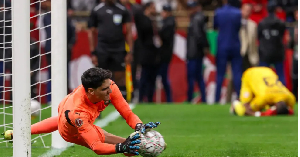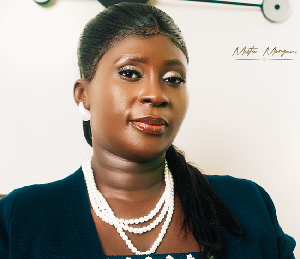Accra, Aug. 25, GNA - Parliament on Monday adopted the report of the joint Committee on Foreign Affairs and Constitutional, Legal and Parliamentary Affairs on the Protocol to the Treaty Establishing the African Economic Community relating to the Pan-African Parliament. Presenting the report, Mr Kwabena Adusa Okerchiri, Chairman of the Joint Committee, said the Committee endorsed the establishment of the Pan-African Parliament as a measure of broadening the participation of the African people and their grassroots institutions in the affairs of the continent.
He said Ghana has been a champion of a strong, democratic and united Africa and the establishment of the Pan-African Parliament would fast track the integration process spearheaded by the first President of Ghana, Osagyefo Dr Kwame Nkrumah and like-minded protagonists.
The objectives of the Pan-African Parliament, he said, was to ensure that the people of Africa are sensitised about policies and initiatives aimed at integrating the peoples and economies of Africa within the framework of the African Union.
It would facilitate the effective implementation of the policies and objectives of the African Union and promote peace, security and stability.
It would also encourage good governance, transparency and accountability in member states as well as facilitate co-operation among regional economic communities and their parliamentary forums. Mr Okerchiri said five members at least one of who would be a woman would represent each member state.
The representation of each member state must reflect the diversity of political opinion in each national Parliament.
Giving the background to the idea of establishing the Pan-African Parliament, Mr Okerchiri said the demise of the Cold War has partly given rise to an unprecedented wave of democratisation and good governance throughout the developing world and in Africa in particular. This phenomenon has undoubtedly created an enabling environment for African Heads of State and Governments to introduce democratic ideals in the continental union as a way of speeding up the integration of their people in the quest for economic and political development.
"African Heads of State expressed great desire to have these institutions in place within the shortest possible time and it is evident in the series of summits of the then Organisation of African Unity (OAU).
In supporting the report, Captain Nkrabea Effah-Dartey (rtd), NPP-Berekum, said the benefits to be derived from the African Parliament was enormous since it would help integrate the region and also speak with authority.
He said it the only place that all the problems of Africa could be discussed and resolved in an orderly and peaceful manner. The most important thing is to get it started and with time perfect it to move Africa forward.
Mr Edward Baffoe-Bonnie, NPP-Asokwa East, relating his contribution to the environment said Africa had a lot of rivers such as the Nile and the Volta that passed through a number countries such that any pollution at a particular point affected those down stream.
He said an African Parliament would be a forum where such issues of pollution of rivers could be brought forward and discussed collectively with the outcome binding on all countries affected.
Mr Kofi Konadu Apraku, Minister of NEPAD and Regional Integration, said it had become imperative that Africans should marshal their resources and work together for their collective advancement. It would also enable Africa to speak with one voice in global trade agreement and market access as well as remove trade barriers and tariffs that had affected movement of goods within the Region.
He said African Leaders should not pay lip-service to regional integration, which would go a long way to reduce the conflicts on the continent, "that had sapped our energies and money in their resolution".
Alhaji Malik Al-Hassan Yakubu, NPP-Yendi, said the voice of Africa would be heard louder with an African Parliament and that after all these years of high hopes after independence "we still don't have the means to make our voice heard and posterity would blame our generation". An African Parliament, he said, would help check bad leadership and governance.
General News of Monday, 25 August 2003
Source: GNA












